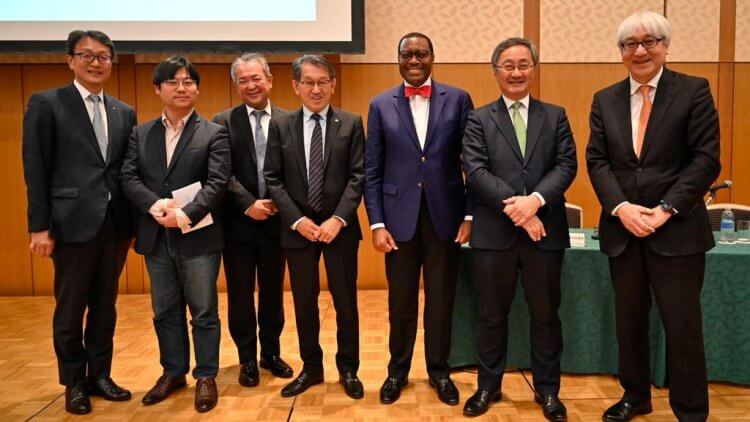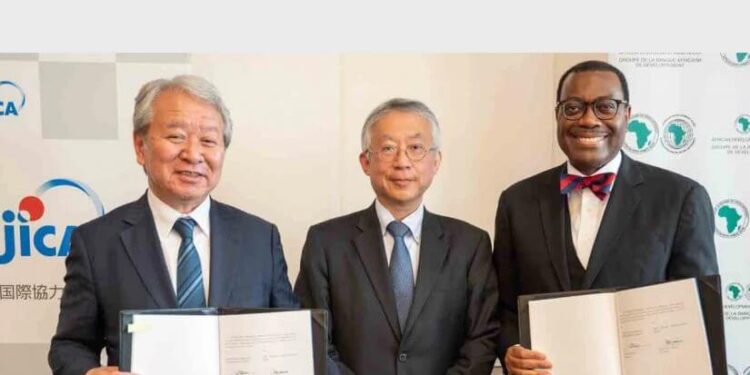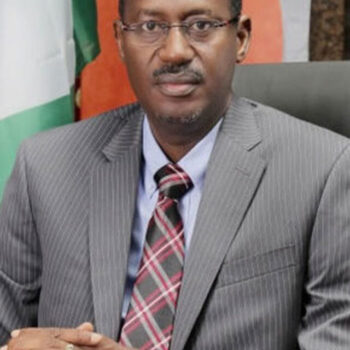The African Development Bank (AfDB) and the Japan International Cooperation Agency (JICA) have signed a JPY 44.1 billion ($350 million) loan to support private sector operations in Africa.
KAMPALA, UGANDA | NOW THEN DIGITAL — The African Development Bank and Japan International Cooperation Agency (JICA) have signed a $350 million loan to support private sector operations in Africa.

The signing ceremony took place at JICA’s headquarters in Tokyo, with JICA President Dr. Tanaka Akihiko and Dr. Akinwumi Adesina, President of the African Development Bank Group, in attendance.
The loan is part of the Enhanced Private Sector Assistance (EPSA) initiative, a component of Japan’s Official Development Assistance to Africa, and was signed at the Eighth Tokyo International Conference on African Development (TICAD 8) in Tunis last August.
EPSA, in its fifth version, is a $4 billion initiative that aims to support private sector operations in Africa. The concessional loan will aid the Bank’s Non-Sovereign Operations in addressing the economic and social pressures faced by the private sector in Africa.
Dr. Tanaka Akihiko, JICA President, said that the loan was a crucial step in Japan’s efforts to work with the African Development Bank to support Africa as it navigates multiple compounded crises, including debt sustainability issues and the impact of the war in Ukraine.
“the private sector in Africa is fundamental in creating jobs for the prosperity and progress of Africa. Although the private sector has been confronting unprecedented economic and social pressures, we are confident that the Bank’s Non-sovereign Operations supported through this concessional loan will play an essential role in addressing these pressing issues,” Dr Tanaka said.
Dr. Akinwumi Adesina, President of the African Development Bank Group, thanked the government of Japan and JICA for their continued support to the Bank and Africa.
“JICA’s support would be crucial in the implementation of the Special Agro-processing Industrial Zones, which will be the biggest game changer of Africa’s agriculture. It will transform rural economies, reduce food loses, process and add value to crops produced in rural areas and create jobs,” Adesina said.
Collaboration opportunities and key areas of focus
Dr. Adesina invited JICA to collaborate with the African Development Bank Group in other critical areas, such as refining the food and agriculture delivery compacts developed by African countries during a January food summit held in Senegal to tackle the continent’s food insecurity.
He also urged the Bank to establish youth entrepreneurship investment banks to provide young people with financial and technical support throughout the business cycle.
Dr. Tanaka agreed with the areas highlighted by the African Development Bank chief, saying they were important to Japan’s future collaboration with Africa. He emphasized the need to explore ways of promoting interaction between Japan’s university students and those of Africa to foster exchange of knowledge and skills.
Components of Japan’s support to Africa
Japan’s support to Africa channeled via the African Development Bank Group through EPSA consists of three main components. These include a robust co-financing facility under the Accelerated Co-financing Framework Agreement, the Fund for African Private Sector Assistance, and Private Sector Investment Finance.
The government of Japan is one of the Bank’s biggest supporters. It contributed to the Bank’s largest-ever General Capital Increase in 2019 and provided $534 million to the African Development Fund’s $8.9 billion sixteenth replenishment in December 2022.
Conclusion
The signing of the $350 million loan by the African Development Bank and JICA demonstrates the commitment of both organizations to support the private sector in Africa. This move is significant in promoting economic growth and job creation on the continent.
The collaboration between the African Development Bank Group and JICA in critical areas, such as youth entrepreneurship and food security, highlights the importance of partnerships in addressing Africa’s development challenges.
Editor’s Note: We would appreciate it if you could reach out to press@nowthendigital.com if you find any outdated or inaccurate content.

















